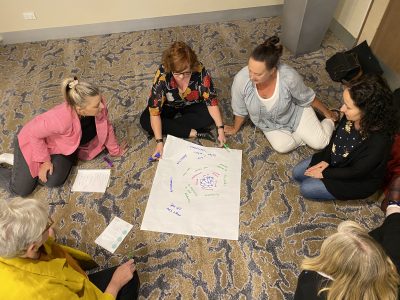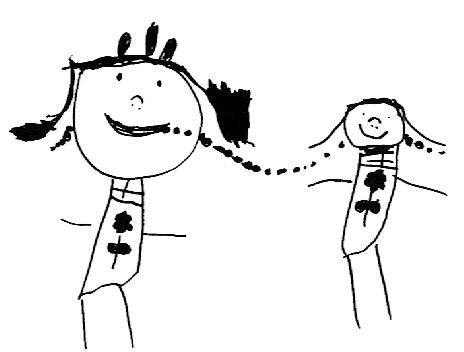
“When I use a word”, Humpty Dumpty said in a rather scornful tone, “it means just what I choose it to mean – neither more nor less”.
“The question is,” said Alice, “whether you can make a word mean so many different things”. Lewis Carroll.
In 2021, Reggio Emilia Australia Information Exchange (REAIE) developed a four-day, face-to-face professional learning program titled, Contexts of Coherent Pedagogy. This program challenges participants to critically reflect on aspects of pedagogy, focusing on theory, praxis, dominant discourses and most importantly, participatory approaches that build on indications from the educational project of Reggio Emilia.
One of the perspectives on the first day is the consideration of language. Like Humpty Dumpty, we all know that language matters. “We should pick our words carefully, being self-conscious about meaning “(Moss, 2014, p.76). During the program, language is privileged, and participants are asked to be careful and self-conscious about their use of words. Language is not taken for granted; remembering that language can open our pedagogy, or it can close it down/narrow it. Wordplay, not the word play, but wordplay in history is a mode of critique. REAIE’s Contexts of Coherent Pedagogy takes a post-structuralist stance to deconstruct and reconstruct words to ensure shared meanings.
REAIE notes the announcement of an updated Australian Curriculum endorsed by education ministers. ACARA CEO, David de Carvalho, said the new national curriculum is a “more stripped-back and teachable curriculum” that supports deeper conceptual understanding and improvement in educational performance. We wonder what that means for the Early Years Learning Frameworks in States and territories in Australia? Is this an opportunity to reconceptualise and resist the dominant, measurable, governmental language of outcomes and perhaps reconsider them as concepts?
Many of us feel challenged by the word outcomes; as a linear process, as a checklist to tick off or to link to documentation. We tread a dangerous behaviourist path if we only consider the outcomes as a list to achieve. There are other more creative ways to consider the intent and the language of outcomes, not in a reductionist way that closes down pedagogy, but rather in a way that opens it up.
Contexts of Coherent Pedagogy will provide opportunities for discussion and acknowledge that language is power-laden and supports dominant discourses and regimes of truth.
© Reggio Emilia Australia Information Exchange. (Volume 4, No. 1).
To quote this blog, please use the following referencing citation.
Reggio Emilia Australia Information Exchange (REAIE), (2022). Outcomes as Concepts REAIE Blogs, Volume 4, No. 1.
References:
Moss, P. (2014). Transformative Change and Real Utopias in Early Childhood Education, Routledge.

